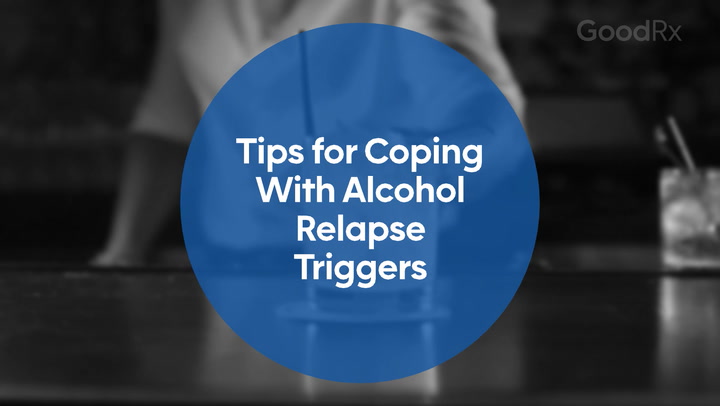
The Top 5 Evidence-Based Substance Use Therapies
Key takeaways:
Alcohol and drug misuse are treated with medication and talk therapy.
There are many different types of evidence-based substance use disorder therapies.
The best therapy for most people struggling with addiction is cognitive behavioral therapy (CBT), or a 12-step program.
Medication-assisted therapy (MAT) is another option. This approach combines medications and therapy to increase your chances of recovery.
Table of contents

A substance use disorder is a mental health condition in which drugs or alcohol cause significant problems in your personal or professional life. If you’re struggling with drug or alcohol use, you’re not alone. Substance use disorders affect more than 1 in 6 teenagers and adults in the U.S. Fortunately, there are good medications and therapies that can help you on the road to recovery.
If you’re hoping to make a change, it can be hard to know where to begin. There are many different types of medications and therapies used to support recovery. But how do you know which one is right for you?
Understanding which therapies are “evidence-based” (backed by science) can help you make the right choice. Read on for more information about how therapy can treat substance use disorders and which types of therapy have evidence to support them.
How are substance use disorders treated?
Substance use disorders are generally treated with:
Therapy
Medications
A combination of therapy and medications
In some cases, your treatment might also include:
Medical devices
Smartphone and tablet apps
Treatments for other mental or physical health problems
Relapse can feel like a step backward. But it’s often a natural part of the recovery journey. Discover practical ways to support your loved one as they navigate the road to sobriety.
Thinking of detoxing from alcohol at home? Here’s what you need to know to stay safe, manage withdrawal symptoms, and start your recovery journey the right way.
Alcohol withdrawal medication: Alcohol withdrawal can be intense, but the right medications can ease symptoms and reduce risks. Find out which options might be right for you or a loved one.
Substance use treatment is never one-size-fits-all. The type of treatment that’s best for you will depend on your mental and physical health, what substance(s) you’re using, and your personal preferences.
What does ‘evidence-based’ treatment mean?
Evidence-based is a term used in medicine to describe a treatment that has been rigorously tested and shown to be helpful.
An evidence-based treatment is:
Supported by published scientific data
A treatment that has been tested/tried successfully more than once
A treatment that has worked for different groups of people and in different settings
How therapy works for addiction
Talk therapy (counseling) is a common treatment for substance misuse. Therapy is a treatment that helps people with emotional, physical, and mental health problems function better.
Benefits of talk therapy
If you have a substance use disorder, therapy can help you:
Feel hopeful
Feel heard and seen
Understand and change your behavior
Understand your lifestyle choices
Understand how your relationships affect your substance use
Improve your relationships at home, school, and work
Learn new life skills
Cut down or stop your substance use
What to expect during talk therapy
During talk therapy, you meet with a therapist or counselor. In some types of therapy, you meet one-on-one. Other types of therapy include your partner, your family, or your peers.
How long do you need therapy to treat a substance use disorder?
Keep in mind that most people need at least 3 months in treatment to significantly change their substance use. You can also choose to do more than one type of therapy. For example, you could have a couples therapist but also be involved in a 12-step program.
Types of talk therapy for substance use
There are many different types of talk therapy for substance use that are backed by science. Several of these are discussed below.
Cognitive behavioral therapy
Cognitive behavioral therapy (CBT) is a one-on-one therapy during which you meet privately with a therapist over a period of time. It’s often considered the most effective therapy for drug and alcohol use disorders.
CBT has been studied in many large trials. There’s evidence that it reduces substance use and improves life in other areas. It works for many different types of substance use disorders. CBT may also prevent relapses, even after you’ve stopped therapy.
Couples therapy
This is a therapy in which you and your partner meet with a therapist over a period of time. There’s evidence that this type of therapy reduces substance use, improves your relationship with your partner, and decreases domestic violence.
Multidimensional family therapy
Multidimensional family therapy (MDFT) is aimed at teens and young people with drug and alcohol problems. The whole family meets together with a therapist over a period of time.
There’s evidence that MDFT can help uncover family influences on substance use as well as improve overall family functioning.
Motivational enhancement therapy
Motivational enhancement therapy (MET) is a short-term treatment in which you meet with a therapist or healthcare professional for one to four sessions. It’s also sometimes called motivational interviewing.
There’s evidence that MET can have a positive effect on substance use disorders, especially if you’re still deciding on your personal goals.
12-step programs
Twelve-step programs — like Alcoholics Anonymous (AA) and Narcotics Anonymous (NA) — are self-help support groups. While these programs aren’t technically “therapy,” we’re still including them on this list. That’s because many of the core principles are similar to CBT, even though meetings are run by community members instead of therapists.
There’s evidence that these programs are as good — and sometimes even better — as other types of therapy for achieving and maintaining sobriety from alcohol. These programs may also be more cost-effective and easier to find than other therapies.
Is medication-assisted therapy right for me?
Medication-assisted therapy (MAT) is a combination of medications and talk therapy. Depending on your substance use, MAT could be the best option for you. MAT can help with recovery from alcohol and opioid use. In fact, there’s evidence that MAT is the most effective treatment for opioid use disorder.
Along with therapy, prescription medications can reduce withdrawal symptoms and substance cravings. Some can even be used long term to help you stay in recovery.
What’s the difference between outpatient, inpatient, and residential treatment?
Substance use treatment usually takes place in one of these three settings:
Outpatient treatment: This is treatment during which you live at home and go to therapy 1 to 2 times a week, either in person or through telemedicine (virtual visit). There are also more intensive outpatient programs during which you go to therapy multiple days a week.
Inpatient treatment: In this treatment, you stay in a hospital for 24 hours. This is usually for people who need more daily structure or who need a supervised medical detox. Inpatient treatment is usually short term, lasting for less than a month.
Residential treatment: This is treatment during which you live in a therapeutic community, usually for months or years. The goal is to disconnect yourself from your current environment and habits and to gain knowledge about yourself and your substance use.
Do I need to do a detox?
It depends. If you’re physically dependent on drugs or alcohol, your treatment may need to start with a supervised detox.
A detox is the process of alcohol and/or drugs leaving your body. Detox isn’t a treatment by itself. But it can prepare you for starting other types of treatment, including therapy.
Detox can either be done as an inpatient or as an outpatient treatment with medical guidance.
How to find a treatment provider
If you’re looking for help with substance use, the Substance Abuse and Mental Health Services Administration (SAMHSA) treatment locator can connect you with a healthcare professional in your area. You can also check out our GoodRx guide to finding a therapist, as well as our resources for finding (or building) a support network for recovery.
How much does addiction therapy cost?
The cost of substance use therapy can vary widely, depending on:
Where you live
The type of treatment you need
Your insurance coverage
How long you need treatment for
Whether you have outpatient or residential treatment.
An average figure for drug rehab is $14,000 per person, but it can be much more than that.
Free or low-cost options do exist. Many government-funded programs, non-profits, and community health centers provide free or reduced-cost services. And most insurance plans (including Medicaid and Medicare) cover at least part of substance use treatment.
The bottom line
Remember: If you’re struggling with a substance use disorder, treatment can help. Getting started with therapy is a great way to achieve — and stay in — recovery. Choosing an evidence-based therapy can also give you confidence that the treatment will work for you, just as it has for many other people.
Why trust our experts?


References
Centers for Disease Control and Prevention. (2024). Treatment of substance use disorders.
Jhanjee, S. (2014). Evidence based psychosocial interventions in substance use. Indian Journal of Psychological Medicine.
Kelly, J. F., et al. (2020). Alcoholics Anonymous and other 12‐step programs for alcohol use disorder. Cochrane Database of Systematic Reviews.
Marcovitz, D. E., et al. (2021). Overlapping mechanisms of recovery between professional psychotherapies and alcoholics anonymous. Journal of Addiction Medicine.
McGovern, M. P., et al. (2013). Evidence-based practices for substance use disorders. Psychiatric Clinics of North America.
National Center for Drug Abuse Statistics. (n.d.). Average cost of drug rehab.
National Institute on Drug Abuse. (2015). What are therapeutic communities?
National Institute on Drug Abuse. (2020). Treatment and recovery.
Substance Abuse and Mental Health Services Administration. (2019). Medication-assisted treatment (MAT) in the criminal justice system: Brief guidance to the states.
Substance Abuse and Mental Health Services Administration. (2024). Co-occurring disorders and other health conditions.
U.S. Department of Veterans Affairs. (n.d.). Mental health.
If you or someone you know struggles with substance use, help is available. Call SAMHSA’s National Helpline at 1-800-662-4357 to learn about resources in your area.

























